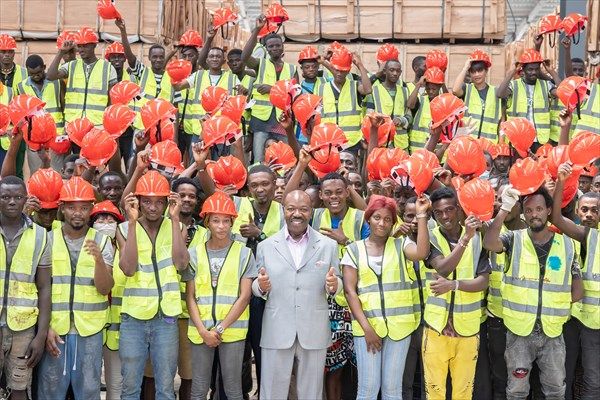Read more
The reopening of some refineries in Africa and the gradual commissioning of new facilities will mark the recovery of the continent’s downstream industry in 2023, according to Hawilti’s African Refineries Watch published today. While sub-Saharan Africa’s refining capacity is still under-utilised at some 40%, recovery is on the horizon with the re-opening of South Africa’s Astron Energy Refinery (100,000 barrels per day – bpd) and Ghana’s Tema Oil Refinery (45,000 bpd). Once both facilities are back in operations, the sub-continent will be able to utlise about half of its installed refining capacity. Refining capacity to get a boost in West Africa Ghana is also expecting to commission soon the Sentuo Oil Refinery, a 3 train multi-product crude oil refinery built within the Tema Industrial Zone with a targeted production capacity of 120 000 bpd. Its initial phase will have a capacity to produce 2 million tonnes per year (tpy) of petroleum products, almost doubling the country’s refining capacity. This is welcome news for Ghana who has seen its imports bill soar in recent months, reaching almost $4 billion in 2022 in premium and gasoil imports, according to the Bank of Ghana. But much larger change is currently happening in Nigeria, with the upcoming commissioning of the 650,000 bpd Dangote Refinery. The facility is scheduled to be inaugurated on May 22nd just before President Buhari leaves office and will cement Nigeria’s position as Africa’s leading refiner. Hawilti expresses cautious optimism on the commissioning of the Dangote Refinery, pointing to the complex and lengthy process required to reach full production. In its most recent report on Nigeria, the IMF for instance did not expect the refinery to reach full capacity right away, assuming a production of only 100,000 bpd in 2024 and 200,000 bpd in 2025. Meanwhile, Nigerian modular refineries have managed to navigate the country’s challenging business environments and found ways to secure new feedstock options to run small-scale facilities. Both the 1,000 bpd Edo Refinery and the 2,500 bpd Duport Midstream Refinery for instance are currently receiving crude oil by trucks from a marginal field in the Niger Delta to support their operations. The Edo Refinery is also undergoing significant expansion, with owner AIPCC Energy expecting to reach a capacity of 30,000 bpd at the end of this year and up to 100,000 bpd in 2024. “The drive to develop downstream assets with emphasis on refineries in emerging economies coupled with global energy volatility and evacuation challenges in some African countries is fueling the interest in the development of modular refineries,” declared Souheil Abboud, Managing Director at VFuels LLC. “The benefits of decentralizing refining infrastructure are one of the main reasons for the growth of modular refineries in Africa, and especially Nigeria. We are surely witnessing a growing demand for more sustainable infrastructure assets and an interest from Nigerian developers to integrated low-carbon electrification options within their future refining infrastructure. VFuels is proud to have completed an engineering FEED package that integrates renewable power solution for a refinery project in Nigeria.”
Thor Explorations Ltd, a Canada-based mineral exploration company with interests in Nigeria, Senegal and Burkina Faso, has launched a Nigerian subsidiary to explore the country’s lithium potential as Africa’s biggest economy seeks to diversify its economy beyond oil and gas. Newstar Minerals Ltd, Thor’s newly formed Nigerian subsidiary, is looking to develop its first large-scale lithium mine in the country. The company has already acquired over 600 kilometres squared of granted tenure covering two known lithium bearing pegmatite deposits and one large unexplored prospective pegmatite-rich belt. Located in Nigeria’s southwest, the tenure covers West Oyo, Kwara State and Ekiti State lithium project areas. Initial field inspection and selective sampling of key sites have returned significant lithium grades from both hard-rock spodumene and lepidolite mineralisation, the company said. It will also continue to prioritise explorations at Segilola gold mine in Osun State, also in Nigeria. “While gold remains fundamental to our growth strategy, we consider the virtually untapped lithium potential of Nigeria to be an opportunity that is too good to miss,” Chief Executive Officer at Thor Explorations Segun Lawson said in a company statement, adding the company will leverage its established in-country presence, experience and first-mover advantage. “We intend to develop both businesses (gold and lithium) without any shareholder dilution.” In 2021, Thor Explorations poured first gold from its Segilola mine as Nigeria’s first industrial gold project entered production. The company spent nearly $100 million to build the mine. Africa Finance Corp., the company’s largest shareholder, provided an $86 million debt-equity financing package. Thor said the Segilola plant produced 98,006 ounces of gold in 2022, which was its first full calendar year of commercial production. Boosting economic growth with mining Nigeria, Africa’s largest oil producer, has substantial untapped deposits of metals including gold, zinc, lead, iron ore and lithium, but nearly all extraction takes place informally on a small-scale or manual basis. As a result, crude oil sales have continued to account for more than 75% of export earnings, leaving the country vastly reliant on oil. Successive governments have pledged to significantly increase mining’s contribution to gross domestic product, which currently stands at less than 1%. In 2017, the World Bank provided around $150 million to the Nigerian government to develop the mining sector, attract investments and enhance its contribution to the economy. Since then, the mining sector has witnessed some sustained growth in its contribution to the country’s GDP, contributing 0.85% in 2022 haven grown from 0.18% in 2018. Mining made up 4% to 5% of Nigeria’s GDP in the 1960s and 1970s, before major operations shut down and crude oil became the government’s major driver of revenues. The new administration of President Bola Tinubu says he wants to boost Nigeria’s GDP by stimulating the growth of non-oil sectors, giving hopes to the revival of some key sectors, such as mining, that were underperforming.

